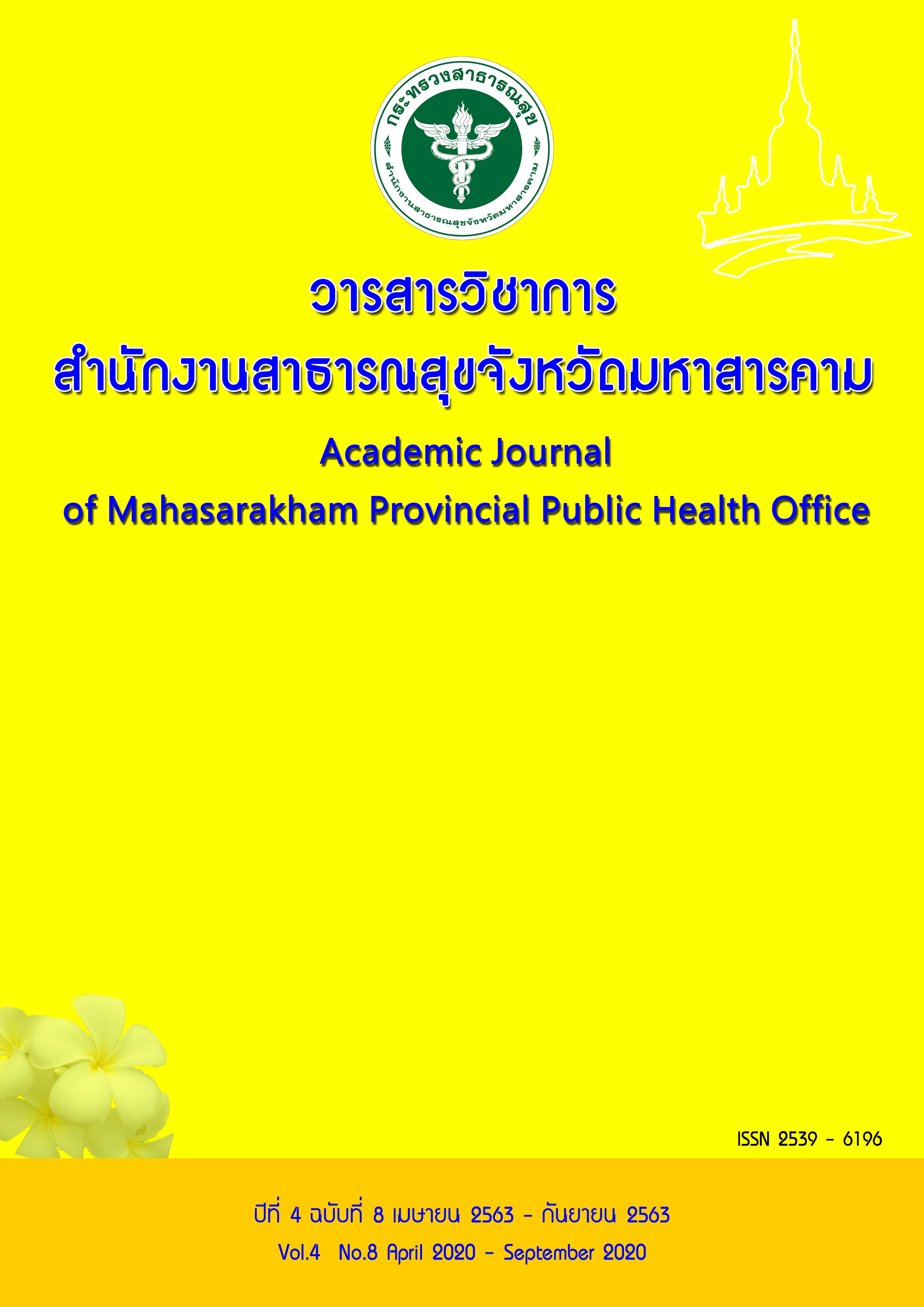Nursing Care of Ectopic Pregnancy with Hypovolemic shock and Salpingectomy : a Study of Two Cases
Abstract
Abstract
Background: Ectopic pregnancy is a dangerous condition and a gynecological emergency. Often problems with uncontrollable bleeding in the abdomen and could cause shock. Therefore, nurses play an essential role in assessing symptoms, monitoring symptoms changes, and correcting shock conditions quickly. Providing efficient pre and postoperative nursing is necessary for nurses to take care of patients with ectopic pregnancy.
Objectives : To study about the nursing care of ectopic pregnancy with hypovolemic shock.
Method : This study aimed to compare 2 case studies who had ectopic pregnant women with hypovolemic shock and salpingectomy. They were admitted to the Obstetrics and Gynecology ward, Takuapa Hospital, from September 2018 to September 2019. Data collection was performed by history taking, assessing risk factors, nursing diagnosis by using Gordon’s 11th health frameworks as a guideline for determining patients' health status, physically, mentally, emotionally, and spiritually. During the study period, the significant nursing problems were divided into 3 phases: preoperative period, postoperative period, and discharge planning.
Results : The study found that both ectopic pregnancies had two similar signs and symptoms; acute abdominal pain, vaginal bleeding, and hypovolemic shock. Case study 1 was a Thai pregnant woman who found shock after 29 hours of care was different from case study 2 was a Myanmar pregnant woman shock since receiving care in the hospital. Both ectopic pregnancies have a different severe problem. In the preoperative and during the surgical stage, it was found that case 1, right fallopian tubes ruptured, left fallopian tubes, swollen, congested, and fibrous around both fallopian tubes and fascia and cut both fallopian tubes and pale. Case study 2, the left fallopian tubes ruptured, and communication is impaired because it is the Burmese postoperative period and discharge planning; in the first case, the patient was grief reaction due to the loss of pregnancy and cut both fallopian tubes causing the inability to have children anymore; while the second patient lacked of knowledge and understanding of family planning. For case study 2, Myanmar pregnant woman, there were problems and obstacles in cross-cultural communication between nurses and pregnant women.
Conclusion : Nursing care for patients with ectopic pregnancy with hypovolemic shock. Nurses need to be competent in assessing the patient's condition, monitoring, and providing initial nursing in physical and mental preparation from the preoperative period until the patient has passed the critical period and no complications after surgery. In addition, in the service of foreigners pregnant women, nurses need to be competent in cross-cultural communication as well as providing effective and comprehensive nursing care.
Keywords: Ectopic pregnancy, Shock, Salpingectomy


